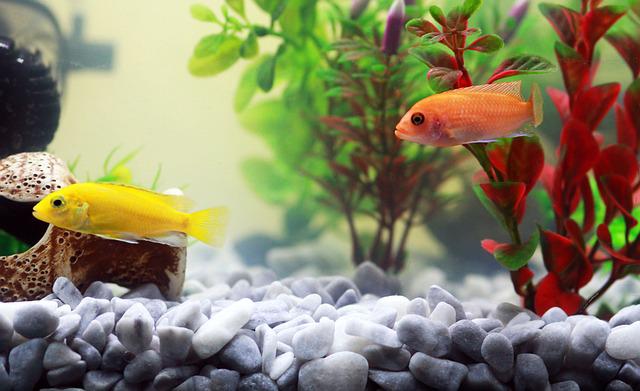Fish can get sick, and it’s not just their bones that suffer. Fish diseases are often deadly to fish, making it important to know what they are and how to prevent them. Many aquarium fish owners are unaware of the fact that their fish may be suffering from health problems and diseases. One of the most common diseases in aquarium fish is bacterial infections which can be spread by water contact, infected fins, and damaged gills.
1. Aeromonas spp.
Aeromonas bacteria are commonly found in freshwater ponds and aquariums. This germ can infect fish and amphibians.
Aeromonas Symptom
Aeromonas can discolor the limbs of amphibians and the fins of fish. Internal bleeding can also occur in these aquatic animals.
Aeromonas Treatment
Maintaining good water quality in aquariums, removing dead fish as soon as possible, and practicing healthy habits, such as hand washing, will reduce the risk of Aeromonas infection.
2. Mycobacterium marinum
Mycobacterium marinum is a bacterial pathogen that infects fish, reptiles, and amphibians. This germ can be found in ponds and aquariums with fresh water. It spreads to humans and animals via contaminated aquarium water. Mycobacteriosis can affect any fish. This disease typically affects slow-growing fish, but it can affect some fish more quickly.
Mycobacterium Symptoms
Affected fish may exhibit no symptoms of illness or may cease eating, lose fins or scales, develop sores, or appear deformed.
Mycobacterium Treatment
Since there is no effective treatment for infected fish, prevention via quarantine and disinfection protocols is critical.
3. Salmonella spp.
Salmonella is a bacteria that spreads to humans and animals via contaminated food or contact with the stool or habitat of certain animals, including fish. Salmonella can also be found in an animal’s aquarium or terrarium.
Salmonella Symptoms
Fish may experience physiological changes as a result of contaminants entering the bloodstream directly through the gills.
4. Streptococcus iniae
Streptococcus iniae is a bacteria that causes severe illness in fish. Fish suffering from streptococcal disease frequently exhibit a disoriented, whirling motion at the water’s surface, giving rise to the common name “mad fish disease.”
Streptococcus iniae Symptoms
Fish with this disease may develop small red spots on their skin, as well as a swollen abdomen and bulging eyes.
Streptococcus iniae Treatment
Streptococcus iniae infection in fish has been successfully treated with a variety of antibiotics.
5. Freshwater Ich
Ich, also known as Ick, is a bothersome disease that affects many freshwater aquarium fish. Betta fish are also susceptible to ich, and ignoring treatment for an extended period of time can result in death.
Freshwater Ich Symptoms
Ich parasites have the appearance of small granules of salt or sugar scattered across their body, gills, and finnage. The severity of the condition will be determined by the number of white spots on the betta fish. These white spots are not the same as the ‘pimples’ that occasionally affect betta fish.
In advanced or severe cases, a betta fish with Ich may appear lethargic and refuse to eat. You may also notice them rubbing against aquarium decorations in an attempt to remove the Ich parasites from their bodies and fins.
Also Read: Most Common Poultry Diseases With Symptoms and Treatment: A List
Freshwater Ich Treatment
- If there are other tank mates, move the betta to a hospital tank.
- Gradually raise the temperature in your tank to 81-86 degrees Fahrenheit for up to 10 days. Ich parasites prefer colder water, which results in longer life cycles and higher reproduction rates.
- Because warmer water contains less oxygen, consider adding an airstone. Increased oxygen levels can help a betta fish’s immune system.
- Continue taking the medication as directed and do not discontinue it prematurely. Ich protozoans are only susceptible to medication for two days of their seven-day life cycle, so continue even if they appear to be gone.
For 5 health problems and common diseases in animals and birds, explore health and wellness information on Health Views Online at Animal Health.





